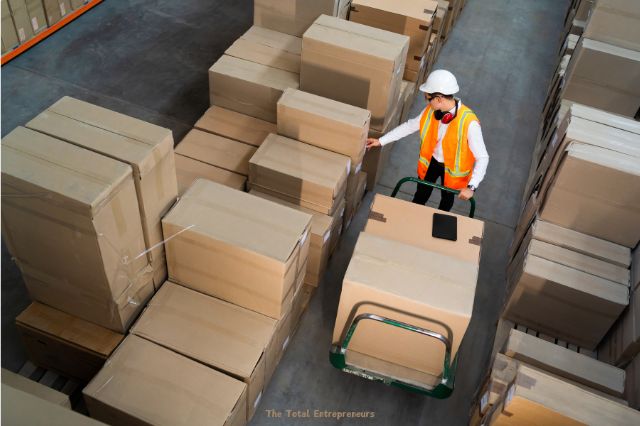Everything You Need to Know About Industrial Packaging
Industrial packaging ensures that industrial-grade goods are protected while in transit. It’s often heavy-duty and specifically tailored to fit products used in large quantities. This can be anything from concrete to chemicals, so there’s a wide range of packaging materials to suit the varied demands.
Keep reading to learn more about industrial packaging and its important role in the supply chain.
Difference Between Industrial Packaging and Consumer Packaging
Purpose
Consumer packaging refers to the materials and designs used to package goods meant for consumption by end users. They’re attractive, well-thought-out, and often intend to enhance user experience. On the other hand, industrial packaging is meant to be used for commercial or industrial use. This means that it doesn’t emphasize the aesthetics of the package. Instead, it prioritizes strength, durability, and practicality to ensure the goods are well-protected during transit.
Material Selection
Consumer packaging uses a wide range of materials, including plastic, glass, metal, and paperboard. These materials are chosen for their eco-friendliness, visual appeal, and suitability for product protection.
Industrial packaging mainly emphasizes strength and resilience. Therefore, strong materials such as metal drums, plastic, wooden crates, and plastic pallets are commonly used. Some factors that determine the choice of these materials include the product’s weight, fragility, and the anticipated transport conditions.
Volume and Size
Since consumer packaging is designed for small-scale household consumption, the packages are usually produced in smaller volumes and designed to fit specific product lines and retail needs. Industrial packaging, on the other hand, is manufactured in bulk to fit large-scale demands. The boxes are also typically larger and designed for heavier and bulkier goods.
What’s the Importance of Industrial Packaging?
Manufacturers use industrial packaging because it has a wide range of benefits, including:
1. Product Safety
Industrial packaging provides the best possible protection for your goods. The packaging used is resilient enough to keep the goods safe from heat, light, humidity, and other external factors. It also does a great job protecting products from mechanical damage such as crushing, spilling, and tearing.
Industrial packaging can also keep your goods safe against counterfeiting, theft, fraud, and tampering. It uses tamper-proof mechanisms such as taping and sealing and is sometimes designed with QR codes and fluorescent films to prevent fraudulent and counterfeiting activities.
2. Branding
Stylish and attractive industrial packaging can make your products stand out from the competition, especially since most industry players don’t put emphasis on the appearance of their packages. Unique industrial packaging also helps build your brand’s image in the minds of consumers. This boosts brand awareness and makes your products easy to identify.
3. Variety of Materials
With a variety of materials like glass, steel, plastic, and wood, you can easily choose materials to make a perfect packaging combination for your products. You must, however, select the right type of packaging for your products. For instance, if you are transporting hazardous waste and chemicals, you should stick to leak-proof packaging such as blue plastic drums. And if you are transporting edible products like bread or canned fish, standard cardboard boxes can offer the best protection.
Innovative Trends in Industrial Packaging
The packaging industry is now using smart and sustainable packaging solutions to make packaging better for brands, consumers, and the environment. Some of the most innovative industrial packaging solutions include:
Smart Packaging
Smart packaging features like QR codes, radio frequency identification (RFID), and bar codes are becoming popular in industrial packaging. These digital identifiers make it easy for companies to track a product’s location and enable customers to access its details in real-time.
Interactive Packaging
Industrial packaging now includes more interactive packaging that inspires and engages customers. This kind of packaging also creates an emotional connection between the consumer and the product, making your brand stand out from the competition.
Recyclable and Sustainable Packaging
Recyclable packaging is becoming popular, especially since consumers have become more environmentally conscious. The use of recyclable packaging reduces waste generation and costs associated with disposable packaging. You can improve your environmental footprint and meet the changing customer expectations by using sustainable packaging.
Choose the Right Packing for Your Products
Industrial packaging plays an important role in ensuring that goods reach their final destination in good condition. As such, the package must be sturdy enough to protect the goods during transportation and storage. There are different packaging materials to choose from, depending on the product you are transporting. If you aren’t sure what material to use for your product, you can always consult an expert for advice.





